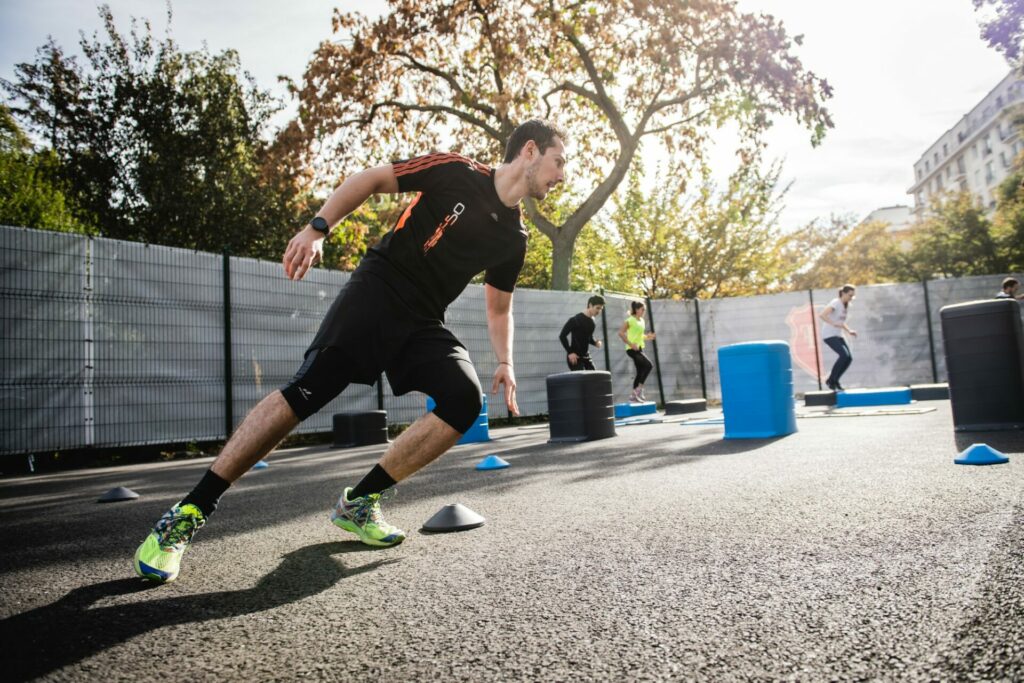Unbeatable Skills Every Athletic Trainer Must Have
At the intersection of emergency care, evaluation/diagnosis, and rehabilitation, athletic training creates opportunities not often seen in other allied health professions. For example, athletic trainers can work closely with patients over long periods of time, developing relationships while providing personalized care. There is also a lot of variety in job placement. Aside from clinics, athletic trainers can be found in high schools, performing arts, with collegiate and professional sports teams, and in industrial sites. While some athletic training skills are specific to particular settings, others are broader and apply to large swathes of the field.
What skills do you need to be an athletic trainer?
The top five athletic trainer qualities that we’ve identified are passion for health, competence and confidence, interpersonal skills, ability to make tough decisions, and attention to detail. Let’s look at each of these.
Passion for health
Athletic trainers work with a clientele highly focused on health and performance. While other healthcare professionals may primarily help patients struggling with diseases like obesity, heart disease, and diabetes, athletic trainers work with patients who are physically active and are dealing with concerns like soft tissue injuries or fractures. These patients are passionate about their physical activity and interested in maintaining peak performance. A shared passion for health will allow an athletic trainer to build rapport and empathize with their patients’ goals and concerns.
Competence and confidence
While some athletic trainer skills and abilities are inherent, others are learned. Building training confidence starts with learning the appropriate athletic trainer skills and techniques, but really develops with extensive practice. Take manual therapy, for example. You can learn manual therapy techniques in a classroom with a professional, but the essential second step is practicing those methods outside the classroom. One way that the University of Idaho athletic training programs excel is in providing students with that hands-on experience. We ensure our students don’t spend their clinic hours handing out water bottles or observing others giving treatment. Our clinical sites are specially chosen to provide hands-on learning experiences for our students so they can apply the athletic training skills they learned in the classroom and build that training confidence.
Interpersonal skills
What interpersonal skills are the most critical for an athletic trainer? First are strong communication skills. Beyond communicating with their patients, athletic trainers are frequently a touchpoint between the many contacts around a patient, such as between physicians, family members, and coaches.
As with all health professions, empathy and compassion are also important. Most people have had an interaction with an unempathetic health care provider and would agree that the provider struggled with gaining their trust, listening appropriately, and providing suitable care. The same is true for athletic trainers.
The last interpersonal skill set is patience and persistence. Injuries can take a long time to heal, and it can be difficult for both the patient and the practitioner to maintain optimism. An athletic trainer who can stay patient, celebrate the small victories, and keep persistently pursuing the end goal will help patients do the same.
Ability to make tough decisions
Athletic trainers are sometimes under enormous pressure. Perhaps they need to decide quickly whether an athlete can return to the field of play, or they need to make a quick diagnosis in an emergency. No one is going to be correct all of the time, but a skilled athletic trainer will be able to operate under pressure and make decisions using the best available information. Just as important, athletic trainers need to be willing to learn from their mistakes without becoming bogged down by indecision and self-doubt.
Attention to detail
High attention to detail is important in all healthcare settings, where minute differences may point a practitioner to completely different diagnoses for an injury or illness. In athletic training, attention to detail may mean recognizing unsafe conditions and preventing injuries, or it may mean hearing the unspoken words behind what a patient is saying. There is a danger in attention to detail, however. Within a clinic or athletic team, there are many details to focus on. Strong athletic trainers focus on the pertinent details and filter out the noise to keep their patients healthy and engaged in their active lifestyles.
Conclusion
As you read through this list, maybe you saw a description of yourself, or maybe you saw some areas for growth. At the University of Idaho, one of our greatest privileges is in bringing together people with diverse skill sets and helping them hone these qualities, as well as learning the technical skills associated with the field. Rather than focusing on innate abilities, we encourage athletic training students to embrace a growth mindset. Whether you think this list of qualities describes you or not, there is room for growing into your own potential as an athletic trainer.
